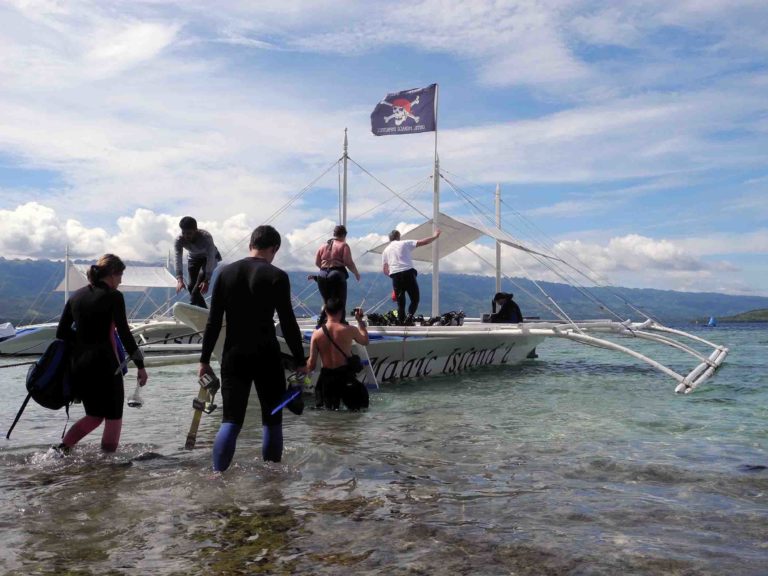The Philippines was a highly favoured destination among UK scuba divers prior to the coronavirus pandemic. Now after nearly two years it has reopened to welcome fully vaccinated international travellers from 157 visa-free countries.
In terms of both Covid cases and fatalities the Philippines ranks just outside the world top 20 – well behind the UK – with some 3.6 million people affected and nearly 55,000 deaths. However, the economic effect on a nation for which travel and tourism account for nearly 13% of its gross domestic product has been serious.
Also read: Puerto Galera’s dive-sites given all-clear
“We have been ready since 2020; with the significant dwindling of new Covid cases, the Department of Tourism can now push forward with our plans and programmes for the full recovery of the Philippine tourism industry,” said Tourism Secretary Berna Romulo-Puyat the day before the country reopened on Thursday (10 February).
“While the country has opened its borders to fully vaccinated business and leisure visitors, it is doing so with utmost care and with full regard for the health and safety of both visitors and the general public,” she said.
Visitors must provide proof that they were fully vaccinated (one or two shots depending on vaccine) more than 14 days before departure, and have a negative RT-PCR test taken within 48 hours of their initial take-off.
To enter visa-free for up to 30 days they must hold valid return or onward journey tickets within that period. Passports should be valid for at least six months, and travel insurance covering Covid-19 treatment held, with cover of at least US $35,000.
Children below 12 travelling with vaccinated parents are exempt from full vaccination. Facility-based quarantine is not required but travellers must report to local officials if they have Covid symptoms.
Puyat said that the move would “lead to growth in the travel and tourism sector, the restoration of lost jobs, the generation of much-needed revenue for tourism-related enterprises, tourism communities and the government, plus many other benefits that will be felt by the entire tourism value chain.”
“I am excited about the prospects of a healthy rebound in tourism for a good number of reasons: the high vaccination rate among our tourism workers, the public health safeguards and guidelines that have been put in place and the number of new tourism circuits that have been developed,” she said.
Around 51% of the country’s 350,000 tourism workers have been vaccinated.
Red Sea governorate
Meanwhile in Egypt, the traditional favourite overseas destination of UK divers, a health & safety update has been issued in an effort to reassure prospective visitors about steps taken to safeguard their welfare.
According to the government, all tourism staff in popular visitor areas (including hotels, resorts, cafes, restaurants and bazaars) have now been fully vaccinated against Covid-19.
Hospitality venues and attractions in tourist areas including the Red Sea governorate require a hygiene safety certificate to operate and are subject to regular inspections, says the Ministry of Tourism.
Visitors must still produce an approved certificate to prove full vaccination, or a certified negative test result taken no more than 72 hours before departure on a direct flight.
Face masks are still required in indoor spaces. Hotel management needs to be informed immediately in case of illness, and if a guest tests positive for Covid the hotel will cover the cost of five days’ food and lodging in a quarantine area. If still positive after that period another five days’ self-isolation is mandatory. If hospitalisation is required, medication and treatment costs are covered.
Those in close contact with someone testing positive are given a free medical examination, and if negative can choose to remain at the hotel with no extra charges. Missed flights home need to be rearranged through travel operators.
Find current entry requirements for most diving destinations here.

